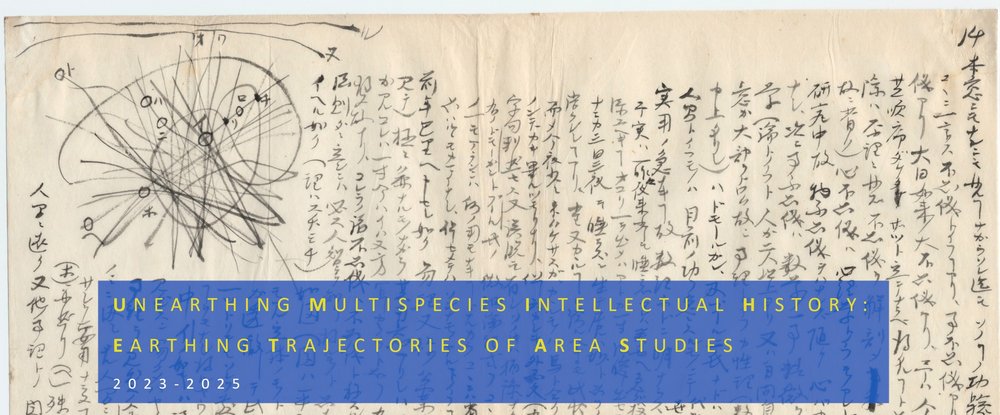
Unearthing Multispecies Intellectual History: Earthing Trajectories of Area Studies (UMIH-ETAS) is an experimental research network that brings together scholars who work at the intersections of Intellectual History, Area Studies, and/or the Environmental Humanities as well as artists and scientists to tackle urgent epistemological challenges of our time. Planetary crisis and the urgent need for sustainability demands radical re-evaluation of the epistemologies behind global academic knowledge production that has long revolved around the nation-state frameworks and the vision of modernity modeled after the industrialised West. Within this context, intellectual history focused on human-only narratives dominated by Western male elites. Area Studies carry the possibilities to interrogate knowledge of broader regions without West-centricity. However, the field that historically emerged to study non-Western nations and regions as part of the Western colonial mission and control of international political governance has too long left the increasingly inescapable entanglement of nature and culture out of its core epistemology.
The project achieves the aim through two-fold conversations with hypotheses. One discussion is forging what the project calls multispecies intellectual history (MIH) where intellectual history draws inspirations from multispecies studies. Like multispecies studies, MIH examines the ways in which humans in various Area Studies regions such as Japan, China, India, and Latin America embodied and delineated their epistemologies inseparably from multitudes of plants, animals, minerals, climate, microbes, and all actors of the earth that influence one another. MIH thus engages in interdisciplinary and inter-regional conversations on the foundation of all knowledge production: epistemologies. It expects to yield novel notions and methods that unearth previously unknown historical trajectories to the changing epistemologies of the present time rooted in diverse localities. The dialogue and its results provide insights for emerging discussion on reimagining of Area Studies attentive to historical multispecies entanglements.